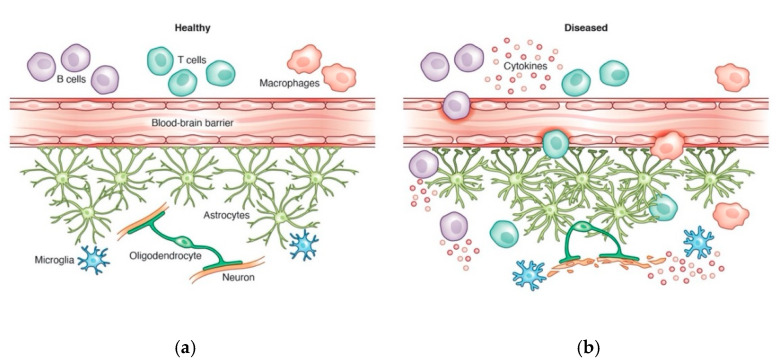Figure 2.
(a) In the healthy CNS, the blood-brain barrier prevents widespread infiltration of peripheral immune cells, including B cells, T cells, and macrophages. (b) In the diseased, inflamed brain, pro-inflammatory peripheral immune cells may enter the CNS through a dysfunctional blood-brain barrier, allowing cytokine release in the CNS. This increases astrocyte and microglia reactivity, which further propagates the inflammatory cascade, damaging myelin and neurons. Credit: Katie Vicari.

